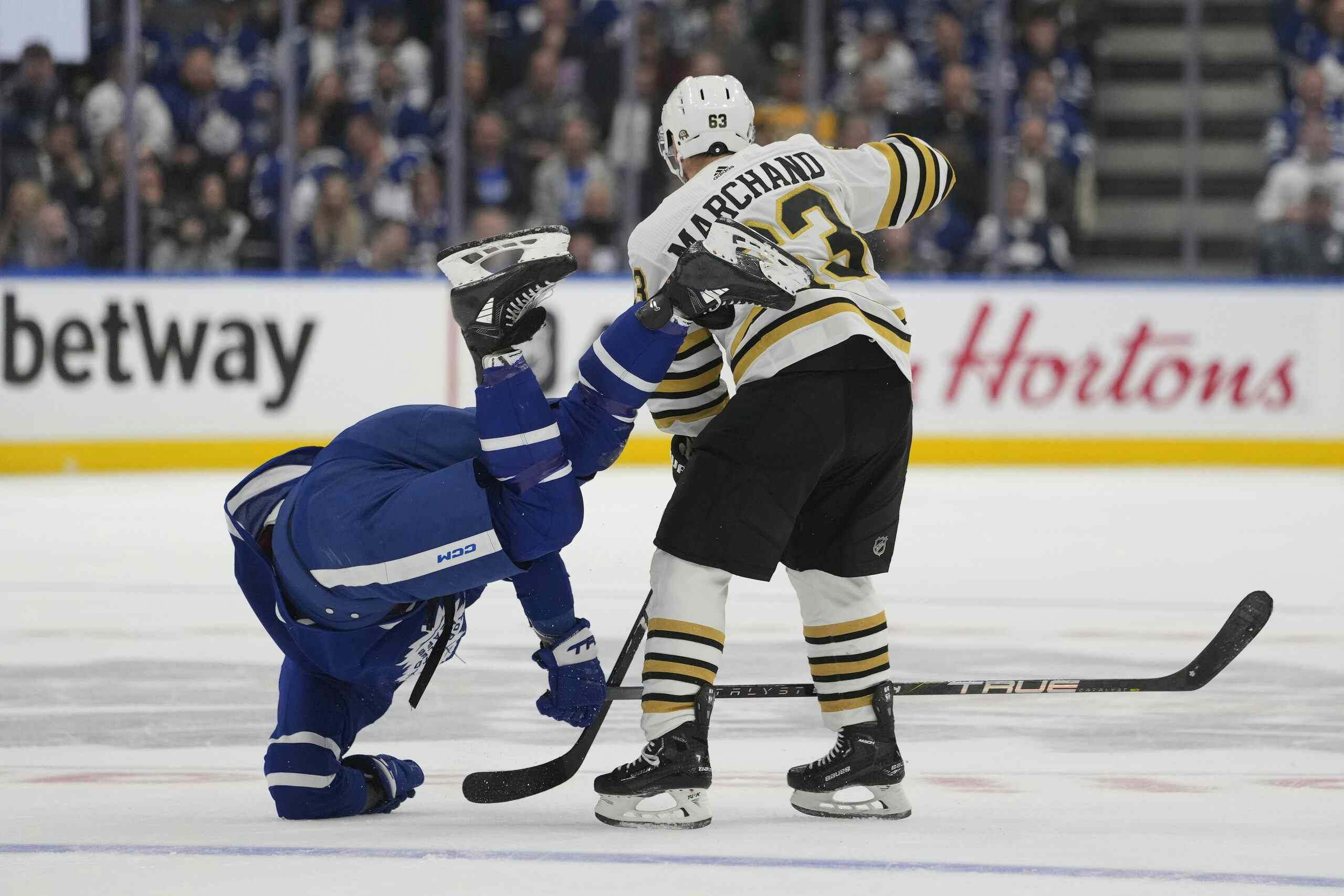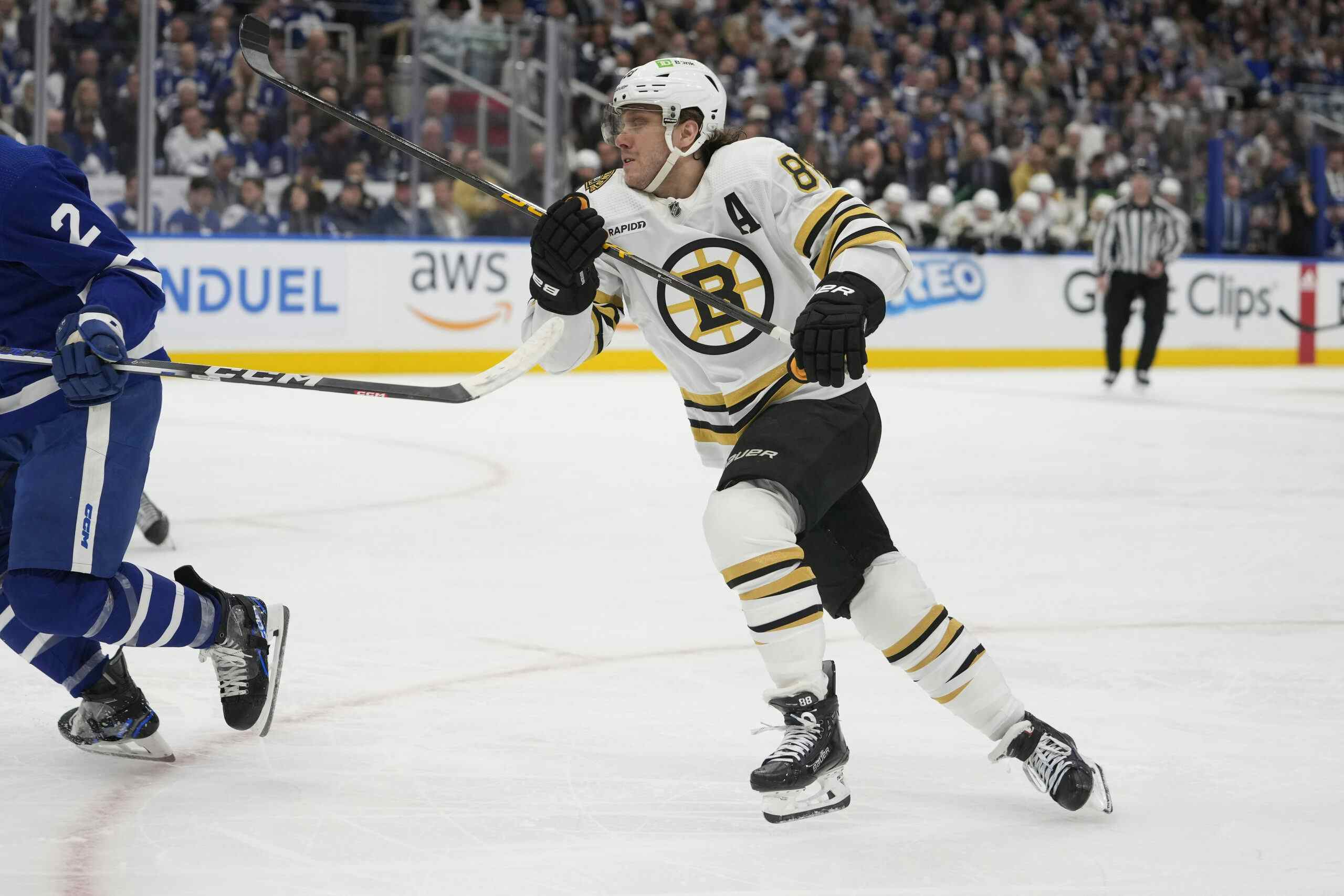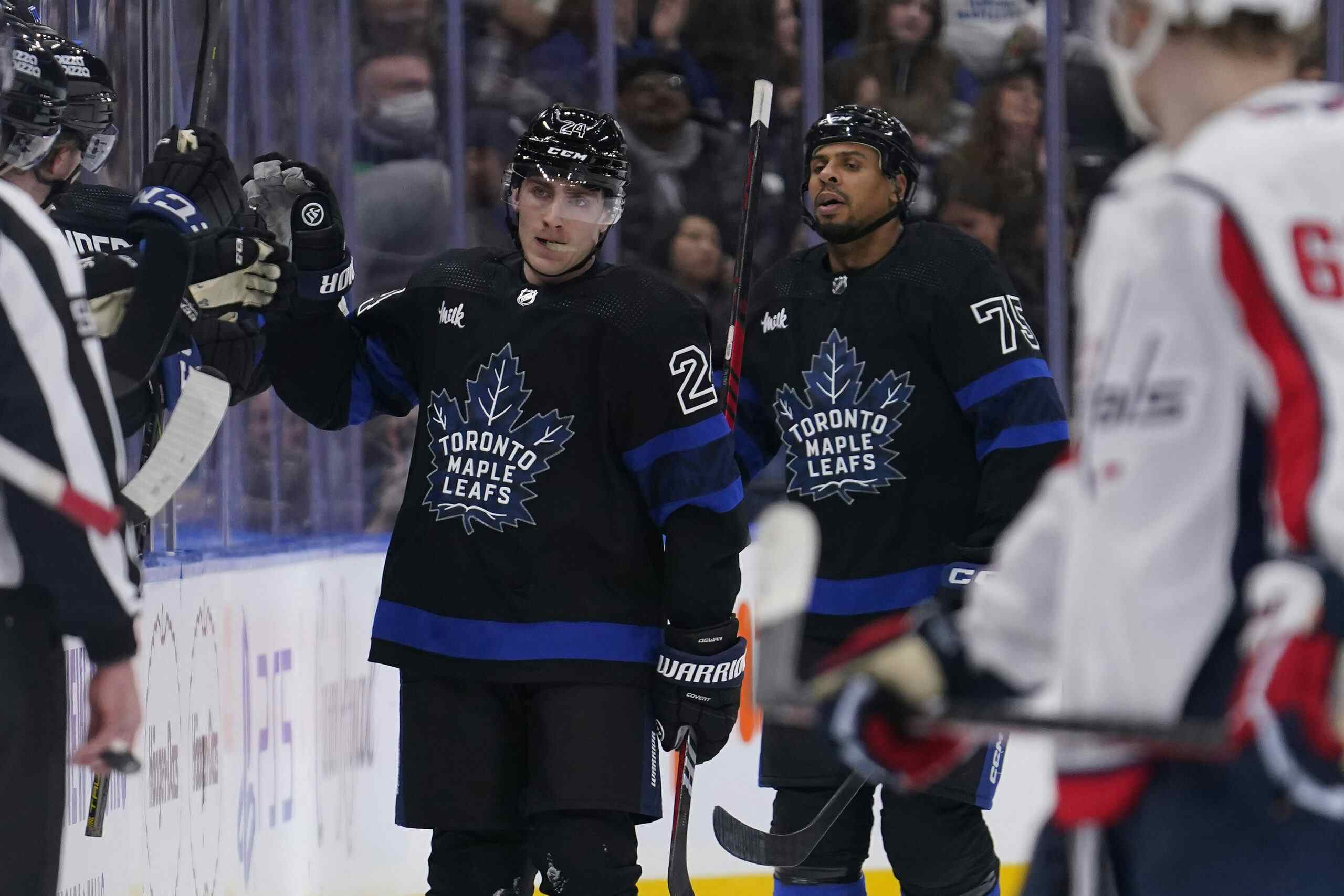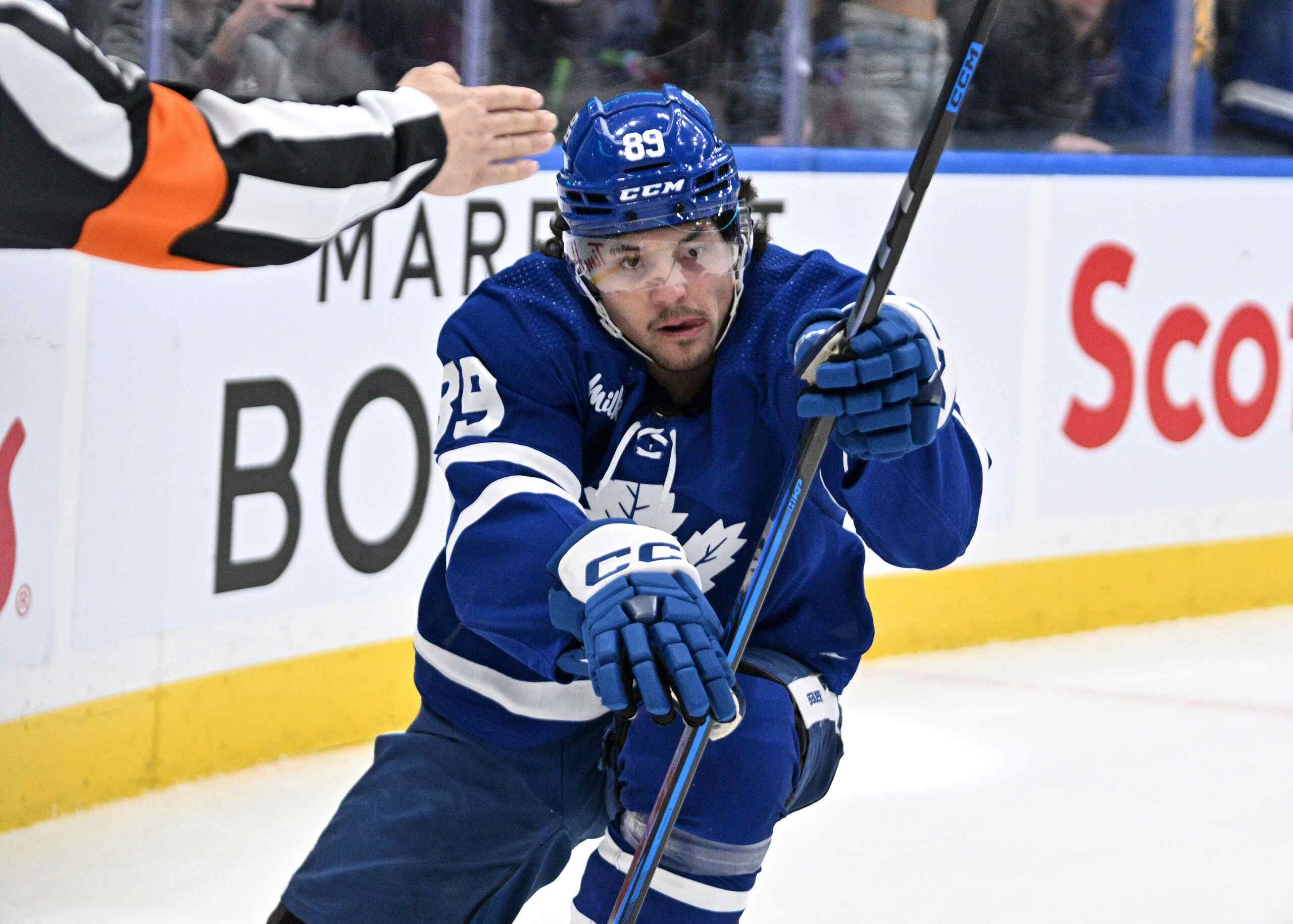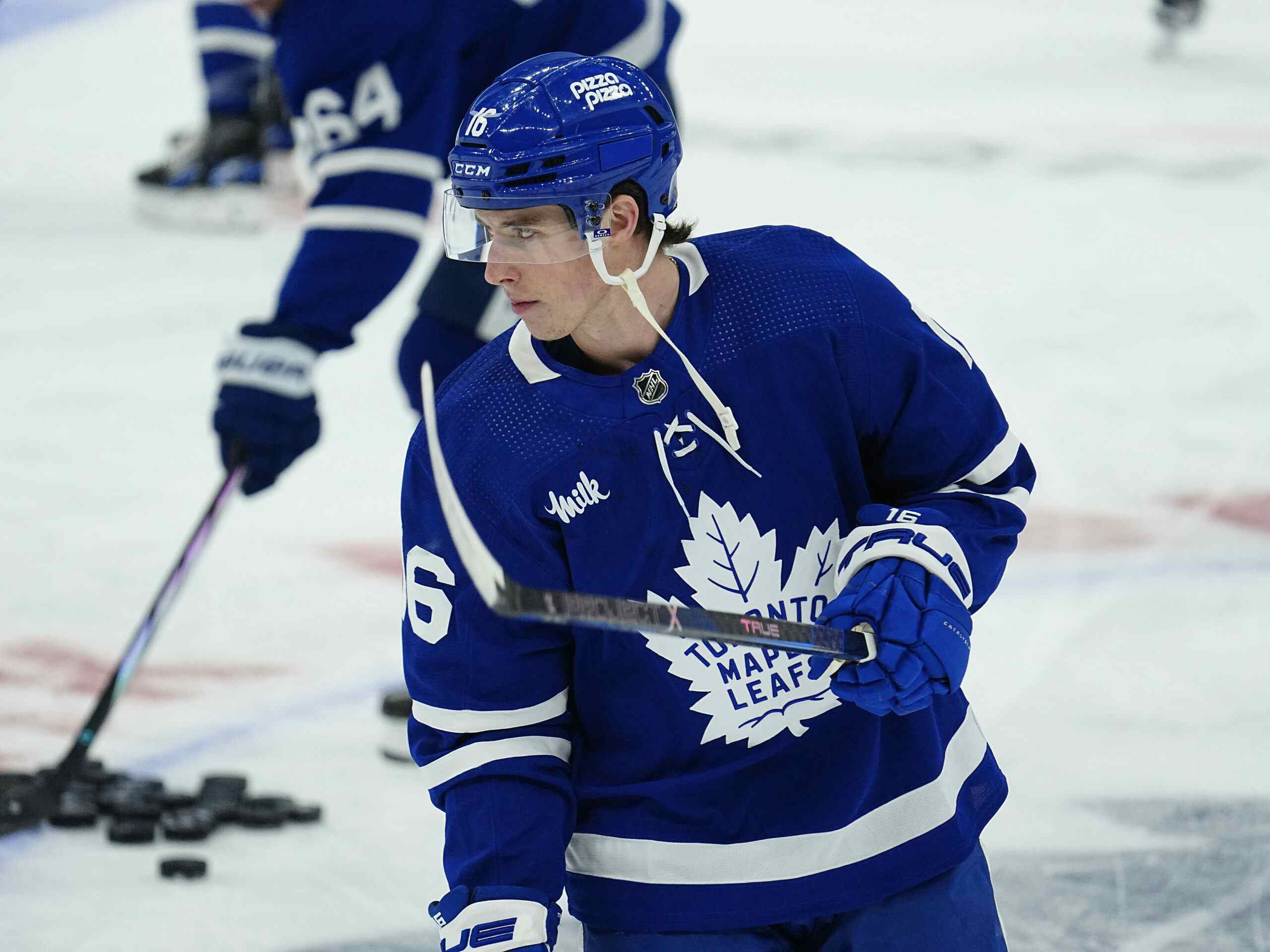Paul Hendrick on interviews, Leafs contention, Darcy Tucker ghost stories and Real Madrid
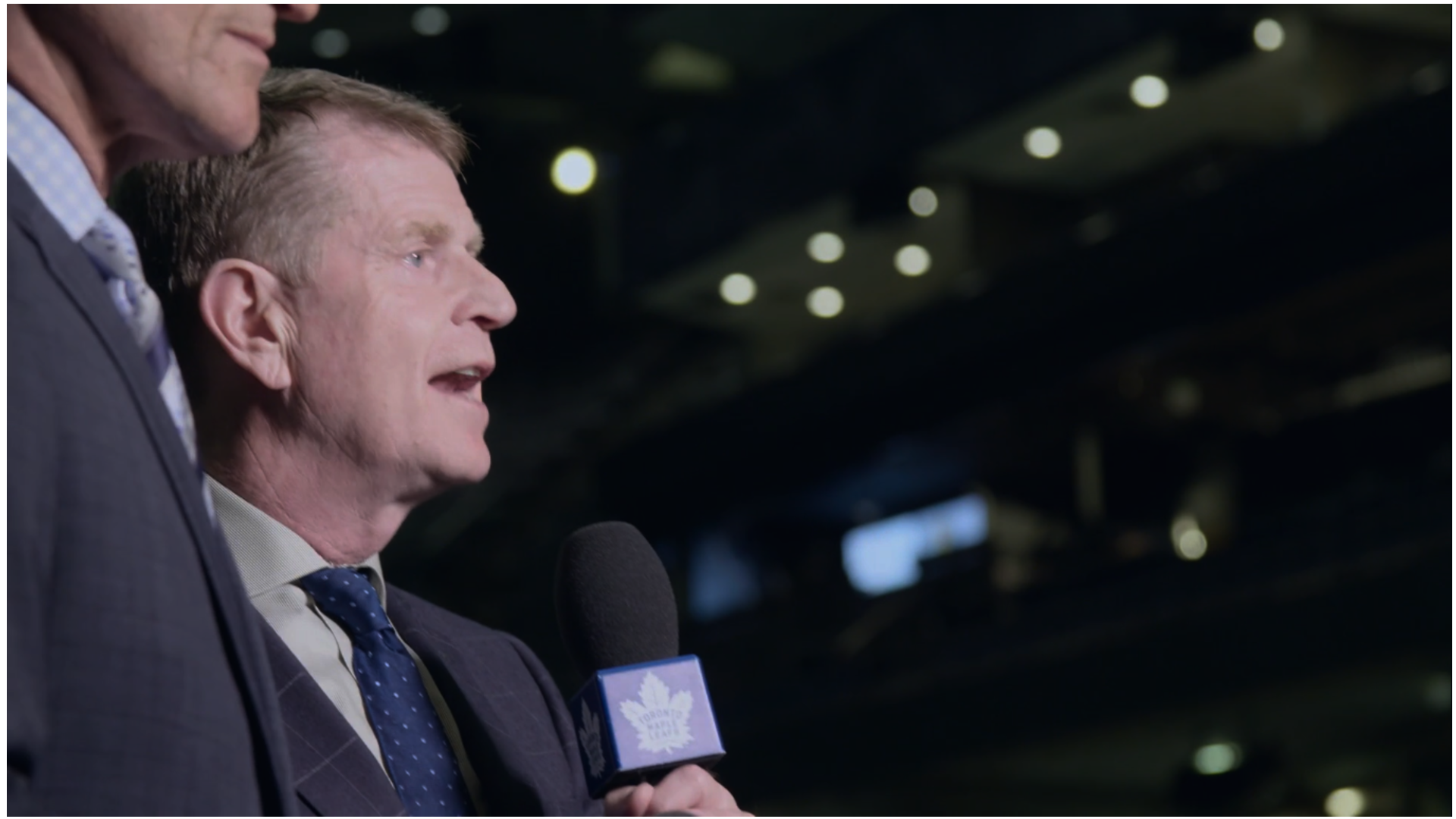
Paul Hendrick has been the voice and presence of the @Toronto Maple Leafs for decades. His demeanor on screen and ability to connect with players through his hundreds of interviews throughout the years has been a prime reason for a lot of fans to tune in.
Known as one of the best people in the arena on the night of a game, he’s held the tough reputation of being that upbeat character in the Leafs media world.
As Hendrick and the club itself head into a new season full of change, I was able to have the pleasure to talk to him and get his thoughts on various things around the hockey world.
Stories of former Leafs, the mentality the front office has this season, and his insane Real Madrid fandom — Hendrick has a wealth of knowledge and an undying love for the game he’s able to cover.
Thomas Williams: You had your broadcasting career start in Sault Ste. Marie, obviously now within the Leafs organization there’s a big connection to the town with Kyle Dubas and Sheldon Keefe. Have you ever talked with any of them about the Soo and your experience up there?
Paul Hendrick: Oh yeah, we’ve spoken often — and I’ve tweeted about Sault Ste. Marie often, especially with former colleagues and about the business I had to do while I was up there. This is well before Kyle’s time, but he knows all the people and is a big fan of the Soo as you know. It’s something we talk about, a lot of old hockey stories from Sault Ste. Marie that I was dealing with. Of course, he knows the same people, having grown up there.
I left in 1981, Kyle’s 34, so I’m going to have to do some quick math on that. But we know all of the same people over my two years up there and that’s obviously a connection that brings us together and that’s a good thing.
TW: What was the hockey culture up there? I know it’s different from Toronto, the big city and everything, but what’s the feeling surrounding the game, especially when it comes to the Greyhounds?
PH: Yeah, well the Greyhounds are the game up there. First of all, it’s their Toronto Maple Leafs. If you’re up there, you’re cheering for the Sault Ste. Marie Greyhounds and certainly following their exploits, which included a Memorial Cup in the 90s, which was absolutely outstanding.
I was there for a couple years and the team was very, very competitive. We got to an OHL final one year and unfortunately lost to Kitchener, but it’s what’s the winter revolves around. There’s things to do up there, but if you’re cheering for hockey, the Greyhounds and number one on your list.
As far as NHL hockey is concerned, they have put so many good hockey players all throughout the National Hockey League, but I know just by where they are, there’s an affiliation to Detroit because you’re just on the other side of Michigan — you get a lot of Detroit television up that way. And of course the Toronto Maple Leafs would be the other affiliation due to the fact the Soo is in Ontario. I think NHL-wise, it’s split between the Leafs and Red Wings generally, but the number-one team overall in that market is the Sault Ste. Marie Greyhounds.
TW: One of the more noticeable things when you do your interviews and what I’ve noticed personally is just your wealth of knowledge and your amount of research you’ve done. Is there anything that has changed in your process and what exactly is that process?
PH: I think the process simply begins with hard work, you’ve got to “roll up your sleeves” and dig in. I always believe when you sit down to talk for an interview — for the most part because sometimes you can’t, sometimes you’re interviewing somebody that has just been brought in front of you and you have no chance to really officially prepare.
But you prepare everyday. Throughout the course of a season you talk to people from the other teams, you talk to people about your team, and you just prepare and research. I’ve always believed that given an opportunity to prepare properly, you like to go into an interview knowing more about the person you’re talking to than they know about themselves. I just think it shows the person you’re talking to that you actually care about them and I think that impresses them as well.
The other thing is the ability to ask a question properly, in terms of getting the right response from that person. I think it’s a skill set that I’ve been able to develop over 40 years in the business. But again the bottom line in all of it for me, is that I just love dealing with people, whether I know them or not — preferably don’t know them because I’ve got something to ask them and everybody has a story to tell.
Regardless of whether you’re a superstar or a fourth-line winger, you’ve got a story to tell and I’ve always taken great enjoyment of being able to get that story from people. Maybe they didn’t think they would ever tell it.
TW: Is there any specific instance of an interview that you weren’t so prepared for, one of the ones that was just placed in front of you, that turned out well?
PH: You know what, Dale Weise of Montreal. He was an interview given to us at a time where I totally prepared for another player on the Montreal team, but give just how busy that other player was, their PR person asked if we would do Dale. And I didn’t know much about him, but it didn’t take long to notice just how articulate and giving he was of himself. And I just jotted down a few notes thanks to Google before we went in there.
Just the opportunity for the two of us to connect immediately turned out to be a great interview. Years ago, when Montreal eliminated Boston, Dale was a big, big part of that upset. He plays, and has played, a key role wherever he has been. He’s not necessarily a National Hockey League star, but he is a National Hockey League player. And he spun some very good tales out of North Winnipeg growing up, which I just found very interesting and I’m sure our audience did as well. Stuff that they would not have known about, but again that was just the opportunity to think quickly and think on my feet, and having had decades in the business, the confidence to be able to pull that off and that’s an interview I’m very happy about, looking back
TW: Speaking of your decades and going through the hockey season, is there any point in which you get tired of the day-to-day grind or any point of the season where it might be a little bit to get excited for a certain game?
PH: Well, no question the second half of the season, given the travel and the fact that they’re playing three to four games every week all winter long, can be a grind. But let’s put this into perspective — there’s no such thing as a bad day in the National Hockey League.
As tiring as it can be at times, you never lose grasp of the fact that you are getting an opportunity to cover the Toronto Maple Leafs on a day-to-day basis. As tough as that might be, even when you get sick and things like that, everybody has a job to and I’m just fortunate to get to do mine. And regardless of what you do, there’s always a grind at some point in time, but I think mine is a lot less, given the team I get to cover and the league I get to cover.
TW: Since covering this team since 1996, there has been lots of Leafs teams and players you have gone through. How does this current group of players differ from past Leafs?
PH: I think without a doubt, this is the most talented Leafs group that I’ve had the privilege of covering. I don’t think we’ve ever had as much top-six talent as we have now. And you can compare it to the early-2000s when the Leafs have several Hall-of-Famers in their lineup, but those players were at the twilight stages of their career. Whereas this group is just starting to scratch the surface.
On this basis, the 2019-20 Leafs, and the team the last couple of years, is the most-talented group that I’ve been able to cover.
TW: What about some personalities with the players? Is there any specific one player that is a lot more outgoing behind the scenes than he lets on?
PH: I’d have to give that some thought. But great personalities that jump to mind immediately over the years; Wade Belak, who we lost several years ago tragically, he had an outstanding personality, a great sense of humour. And was just an absolute pleasure to be around.
Eddie Belfour, who you wouldn’t think has much of a personality, actually has a lot of it. Loves to talk about old hockey and old hockey goaltenders, he’s a historian of the game. He can chat on a bunch of things and loves to talk the game of hockey. You get him down on a one-on-one situation at the backend of a charter airplane going somewhere, he’d come back and bend our ear and talk to Harry Neale and all of us about goaltenders that he really respected — namely Terry Sawchuk. Belfour was one that you wouldn’t think as a sort of fun guy, he’s an absolute treasure to talk with and I enjoyed very much the opportunity to speak with him on our many charters.
If I were to pick a player, maybe Ed Belfour sticks out.
TW: Touching on past Leafs as well, one that certainly does have that outward personality, is Darcy Tucker. I know you have a certain story about him, do you mind sharing it?
PH: Sure, it’s been somewhat out there for a while, so I don’t think he will be too embarrassed. But back in the early-2000s, the Leafs on the California road trip, they played back-to-back games with two of the three cities and on this particular night it was Anaheim then Los Angeles. The Leafs got beat rather badly in Anaheim and then were heading up the highway to Los Angeles, getting ready to take on the Kings the next night.
But we knew we were staying, as per Pat Quinn’s request, at a grand old hotel in downtown L.A., the Biltmore. And it’s a famous hotel, hosts of the first several of the Academy Awards were in their grand ballroom, and Pat [Quinn] loved to stay in these type of hotels wherever we were in the NHL.
So we’re on-route to the Biltmore — and the other thing about it is that it’s known as one of the haunted hotels in North America. That certainly struck a chord with Darcy Tucker, who is not a big fan of anything haunted, ghosts, excreta. So he was rather concerned on the bus up to L.A., and when we got in there of course his teammates certainly played on this.
His roommate was Bryan McCabe and he collaborated with Tom Fitzgerald and Eddie Belfour. Both of them snuck into the room by getting the keys in the envelopes on the front desk, getting in ahead of Darcy, who was then given a second set of keys by Bryan.
But in the meantime, Eddie Belfour is in a closet, under Darcy’s bed was Tom Fitzgerald — half hour in and all the patience needed, Eddie started scratching on the closet door very lightly and unbeknownst to Darcy, below him Tom was pulling on his covers ever so slightly. Tucker, who was freaked out to begin with in that place, literally jumped into bed beside Bryan McCabe and was not too pleased, screaming before Fitzgerald and Eddie came out of their hiding places.
So that got a great laugh and it’s not something you think of Darcy, who would dive into an Ottawa Senators bench and take on the entire team. Not a big fan of ghosts or alleged ghosts.
TW: Heading into next season, is there anything you’re doing different with your broadcasts? Is there anything you’ve thought about changing up a little or developing next year?
PH: Well, I think we’re going to focus more on the Maple Leafs moving forward. I know we’ve dealt with both sides in terms of interviews and what not, but I think from a marketing perspective for Maple Leafs dot com and Leafs Nation Network, we’re going to put our entire focus on the Toronto Maple Leafs. Continue to tell stories the best we can and do sit-down interviews with these players and try to get a different perspective than normally what you get. And we’re going to cover the basic ins-and-out of this hockey club day-to-day, whether it be practice, gameday, post-game, and start from there.
With a product that is going to contend for a Stanley Cup, they’re among an elite group of teams that are certainly in the mix to win this thing. From that perspective, compared to other years where you knew the chances of winning a cup were not there quite yet, that isn’t the case this time around. I think they’re possibly in the mix to win this, if the team remains healthy and obviously if a few things go their way, because there is so much that’s involved to winning a championship, but they’re certainly going to contend for one.
The other point is simply the opportunity to get to cover this organization as it attempts to sustain itself at a high level, year in and year out, and I think ultimately that’s the mission statement. Sustain yourself at a competitive level long enough that you might be able to win a Stanley Cup, such has been the case with the Washington Capitals and the St. Louis Blues the last couple of years. And I think they’re good role models for the Maple Leafs to follow.
TW: It will definitely be an interesting season to watch. Finally, just something I had to touch on, you’re a big fan of Real Madrid and I’m just curious how it started.
PH: Well, you know what, not that random. I married a girl who’s family is from Spain, her mother from Madrid and father from Northern Spain. But you get introduced to the sport as I did over there, with the opportunity to actually go and see a game, and you’re locked in.
I could have chosen Atletico Madri, but it was a Real Madrid game I was at. I became as passionate about them as I have been about the Toronto Maple Leafs. Growing up around Noranda, Quebec, where Dave Keon is from, I never thought it would happen but getting exposed to it 32 years ago and seeing the game these guys play in-person, you just can’t help but gravitate and progress with it.
That’s simply what it is, I married into a Spanish family and ended up cheering for these guys. That includes the whole country of Spain, and I’ll be honest, I had a tear down my cheek when they won the World Cup back in 2010. I can only imagine what Leafs Nation and the rest of us will be like in the event of a Toronto Maple Leafs Stanley Cup victory, and I think there will be a few tears shed then as well.
I watch all of Real’s games, I follow them closely. And you know what, Kyle Dubas is a big fan of La Liga soccer and what’s happening over there with Real Madrid, so we’ll talk often about European soccer and just how teams go about achieving their success, and I know it’s something that Kyle applies to hockey.
TW: You touched on it a little bit, but with keeping up with two sports, do you find soccer is essentially a getaway from hockey when it becomes too much in that mid-season slog?
PH: Yeah for sure, it’s a huge getaway and I love it but there is no such thing as a free Saturday. I work pretty much every Saturday for the next eight months, but given the time soccer is on, it’s great in the morning depending on when your team is playing to get a chance to watch it.
I really, really enjoy it thoroughly. It’s a nice escape.
Last season for me, from a Real Madrid perspective, was frustrating to say the least, as they tried to regroup and maybe underestimated losing Ronaldo and expecting others that should have stepped up. But they were out in the Round of 16 in the Champions League, not even in contention for La Liga and they were beaten out in Copa Del Ray. So it was just a lost year, and I’ll be honest, when they started spinning their wheels in late-March, I took my foot off the pedal in terms of interest.
But it’s nice to have that allegiance, to watch it as a fan.
A couple years ago in Madrid, when I was able to watch Real Madrid play Espanyol, I was down there with a bunch of fans when Sergio Ramos got off and was throwing off pieces of his kit. And I couldn’t believe it. There I was, 60 years of age, battling with kids for his wristbands and all his other stuff. But that’s just the passion for the other sport. It certainly brought the kid out in me and was a good deviation from the norm.
Thanks to Paul and his ability to talk with me for several minutes about his career and the game that we all pay attention to.
Recent articles from Thomas Williams

